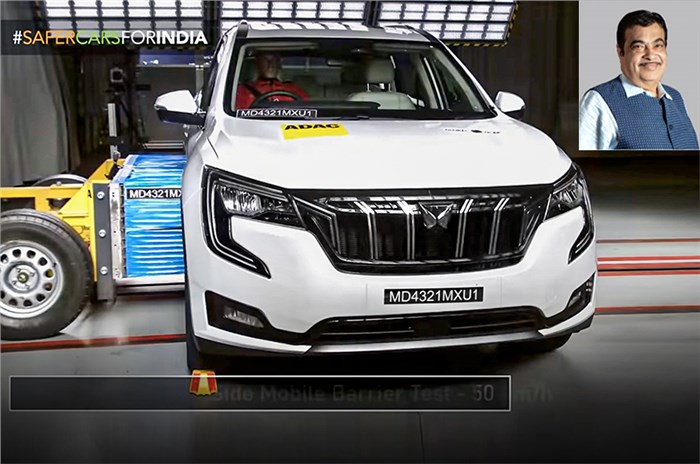Petrol, diesel, CNG and EVs will be crash tested under the upcoming Bharat NCAP programme.
The union minister for Road, Transport and Highways, Nitin Gadkari, will launch India’s much awaited crash test rating assessment programme, called Bharat NCAP, tomorrow. This makes India only the fifth country in the world to have its own crash test programme.
- Bharat NCAP to follow global crash test rating standards
- Will also test CNG and electric vehicles
- Likely to come into effect from October 1, 2023
Bharat NCAP: crash tests to remain voluntary
Under the Bharat NCAP crash test assessment programme, manufacturers can voluntarily get their cars tested as per the Automotive Industry Standard (AIS) 197.
Bharat NCAP is also aimed at increasing the export-worthiness of Indian automobiles. Additionally, the testing agency will also have the liberty to pick up vehicles from the showrooms.
Bharat NCAP: global testing standards
The government has aligned Bharat NCAP’s testing protocol with global crash test protocols, which implies that the programme will give a star rating between 1-5 for cars tested, with 1 being the lowest. Based on the performance of the vehicle in the tests, the model will be awarded a separate star rating for adult occupants (AOP) and child occupants (COP).
The parameters for the star rating include various factors like pedestrian-friendly design, the structural safety of the car, provision of active and passive safety assist technologies and the safety of adult and child occupants.
Bharat NCAP: which vehicles qualify?
Vehicles that have been approved for carrying up to eight passengers, in addition to the driver; has a gross weight lower than 3.5 tonnes; and is either manufactured or imported into the country will be eligible for the Bharat NCAP crash tests.
Apart from combustion-engined vehicles sold in India, Bharat NCAP will also test and rate CNG and electric vehicles.
The new policy will also benefit local automakers since they will no longer have to ship their vehicles abroad for testing, which is an expensive process.


